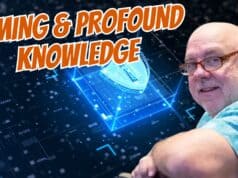How to Fix a Broken Bicycle Chain – WikiHow
Here is a WSJ article on WikiHow, printed today.
Standardized Work is a core concept and a foundation of the Toyota Production System (scroll down) and Lean Manufacturing. The idea is to define and standardize a “current one best way of doing an activity safely, in a way that ensures quality for the customer” (one way I like to define it).
The point is to get everyone away from “doing it my own way” and to have a standard method for doing something. This applies to assembly work, but it also implies to machine maintenance, management tasks, and basically any process that is important and repeated at some interval.
Most of the time, we think of SW as something for “the workers,” but it really goes beyond that — everyone can have standard work defined. If one manager does, say, a safety gemba walk in a certain way, that method should be standardized and followed by the next manager who eventually takes their place (and followed by other managers who do the same thing). The SW, as written, should followed until someone has an idea for kaizen, or continuous improvement. If the SW is followed by many people, you have to get some consensus and update the SW in a way that everybody will now follow. You have to test and make sure the change is truly an improvement before implementing it fully.
Anyway, it's a complex topic and an entire book (Toyota Talent) is being written about it (out next year from Liker and Meier, the co-authors of The Toyota Way Fieldbook
).
What I'm linking to above is a website that is a “wiki” — meaning anyone can edit it (similar to wikipedia). For example, there is a wikipedia page about lean manufacturing that is owned by nobody and edited by everybody. Sounds like a recipe for chaos right? The system usually works. If one “jerk” makes a random change, someone else will edit it back. The problem is when two people get into a fight back and forth about how the page should be — a person can be banned for being belligerent, but there's no “owner” of the page ultimately.
Does that remind you of your Standard Work process? Two people fighting back and forth about how it should be? At least in a workplace, you ultimately have a supervisor or manager who can “break the tie” and make a decision if no true consensus can be reached.
Back to wiki — it's not just “wikipedia” but it's a general concept, the idea that a document can be maintained and updated by an open group of people. Check out wikihow for another example, a website dedicated to “how to” items. Each of these could be considered Standardized Work. Fixing a broken bike chain seems like it is similar to what could be Standardized Work for fixing a machine.
When I first worked with SW at General Motors, I was taught by the lean gurus to have the production team do SW in pencil so 1) it could be easily created without relying on computer skills (which only the engineers had, for the most part) and 2) it could be easily edited. Good principles. You don't want supervisors or engineers completely writing SW for a team. The team won't respect it because they didn't write it and didn't get input. Secondly, SW can't be permanent, it needs to be edited. With paper, there is only “one” copy, so version control isn't an issue (although the SW sheet could get lost, which would be bad).
I've seen people use spreadsheets to create SW (and I've done that myself). I've coached a team through the process of creating SW in an Excel template and it works OK: I get team input and it is “their” document originally (I've done this in manufacturing and now in healthcare). The problem is, it can be hard to edit the document, it's easy to print out many copies and have different versions laying around, etc.
I know some companies have fancy software for Standardized Work — it's all electronic and workers view it on screens in their workplace. But who knows if the SW was written by people who really work in that process and if it can be updated??
My main question (and I took a long time getting here): Is anyone using “wiki” tools (on internal servers, of course, not the public internet) to create, maintain, and update Standardized Documents? I wonder how that would work out. One advantage over other electronic systems is that wiki would be cheap or almost free. You could have electronic access and version control, even include photos or video into the wiki. I wonder if you would have a “battle” of two employees constantly changing the SW back and forth? You would need some mechanism for overseeing that and to communicate when changes are made… things that I think a wiki could accomplish. Thoughts?
Please scroll down (or click) to post a comment. Connect with me on LinkedIn.
Let’s build a culture of continuous improvement and psychological safety—together. If you're a leader aiming for lasting change (not just more projects), I help organizations:
- Engage people at all levels in sustainable improvement
- Shift from fear of mistakes to learning from them
- Apply Lean thinking in practical, people-centered ways
Interested in coaching or a keynote talk? Let’s talk.









Hi Mark,
It’s funny you ask this question. I’ve been thinking about implementing a wiki for this very reason. I would love to hear what other people have done and what wiki product they used. There are a lot of choices.
One of my main issues is that most of them are not WYSIWIG, so my users would be lost trying to use it.
Can’t wait to hear what other people have to say.
Daniel
Mark, amazing you are posting this today…I’m in day two of a three day kaizen event on, guess what, “Standard Work”!! We are making some great progress…we’ll see just how the larger group responds when we do our management presentation on Friday afternoon.
I like the wiki concept a lot. My question: How would it work in an ISO environment, where document control is a major issue? If the wiki had some “release approval” that would provide some review satisfactory to the notified bodies, perhaps it would work well.
You may be way ahead of the game…don’t lose the idea.
Many thanks for the tip on the upcoming Liker book on this topic.
Wikis as well as other web 2.0 tools like blogs and folksomies are definitively on the way to the enterprise space.
The major concern about wikis related to document SW deals with the approval workflow that some organisations have. Because with a wiki is so easy to edit a HTML page I think you must first develop a sense of ownership in your team so everyone is reponsible for the changes he/she makes to the written process. Fortunately some wikis have mechanisms like RSS so you can subscribe to the page and receive a notification when the page has changed.
That being said I see no other really big obstacle to wikis to become repositories of not just SW but of knowledge. A really flexible and fast one.
This is a link to an article that sheds some light on this matter.
What makes an enterprise wiki — CMS Watch